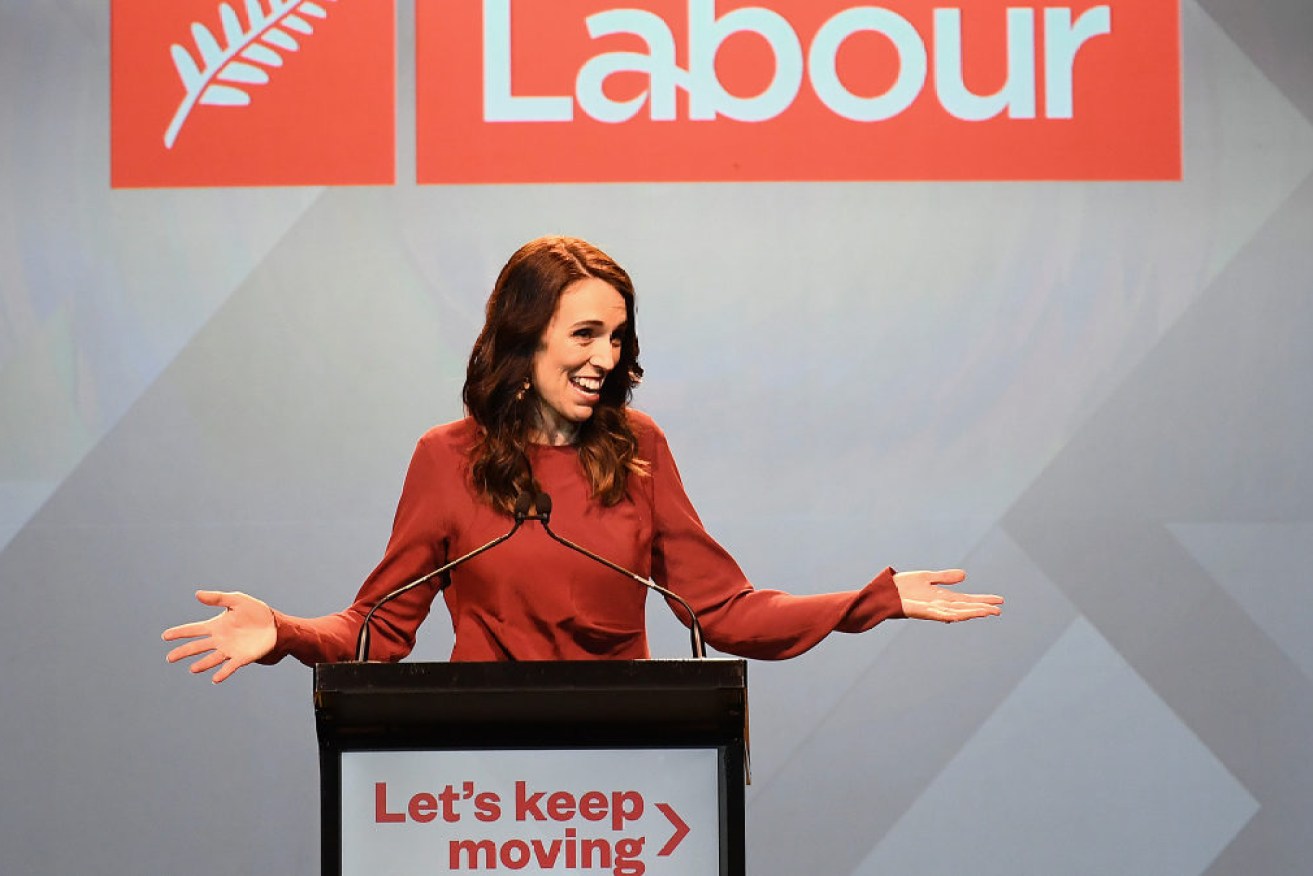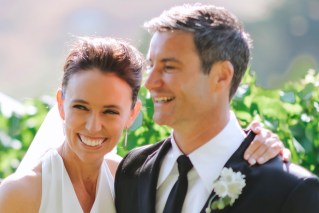NZ votes yes on euthanasia, weed unlikely

New Zealand Prime Minister Jacinda Ardern claims victory for Labour in the October 17 election. Photo: Getty
New Zealanders have voted to support euthanasia in droves but not to legalise cannabis, according to early results from two referendums.
The preliminary results from the public polls held alongside the election on October 17 were released by the Electoral Commission on Friday.
Kiwis supported the End of Life Choice ballot, voting 65 per cent in favour and 34 per cent against.
This means assisted dying will become law in November 2021.
However the “reeferendum” is set to fail, with 46 per cent in favour and 53 per cent against.
The results are in line with expectations and polling, though they are not final. Almost half a million votes are still to be counted.
Those “special votes”, which are largely from out-of-electorate and overseas voters, will be added to the mix ahead of the final declaration on November 5.
Historically, those voters have supported left-leaning parties Labour and the Greens, which suggests the final margin will winnow.
Within minutes of the results, Prime Minister Jacinda Ardern broke her silence on her choice in the contentious poll, revealing she voted “yes” on legalising cannabis.
Ms Ardern opted not to reveal her vote during the campaign, saying she wanted Kiwis to have their say on the matter without her influence.
Given the PM’s historically high popularity, her lack of public support is likely to be decisive for the “no” campaign.
Justice Minister Andrew Little said he believed the margin on the cannabis question – just 167,000 votes – was too many to change the preliminary result.
“It is highly unlikely the result will get overturned on the specials … they would have to break 70 per cent yes to overturn the result,” he said.
“The probability of that is so low as to be virtually non-existent.”
Mr Little also ruled out further decriminalisation pushes in the government’s second term, despite a likely parliamentary majority of MPs supporting such a push.
“The electorate has spoken. They are uncomfortable with greater legalisation, which I would interpret as decriminalisation of recreational cannabis … I think we have to respect that.”
A leading advocate for change, Auckland Central MP Chloe Swarbrick, said she would wait for the final outcome.
“New Zealand has had a really mature and ever evolving conversation about drug laws in this country and we’ve come really far in the last three years,” she said.
“We’ve had record numbers of special votes, so I remain optimistic.”
-AAP








